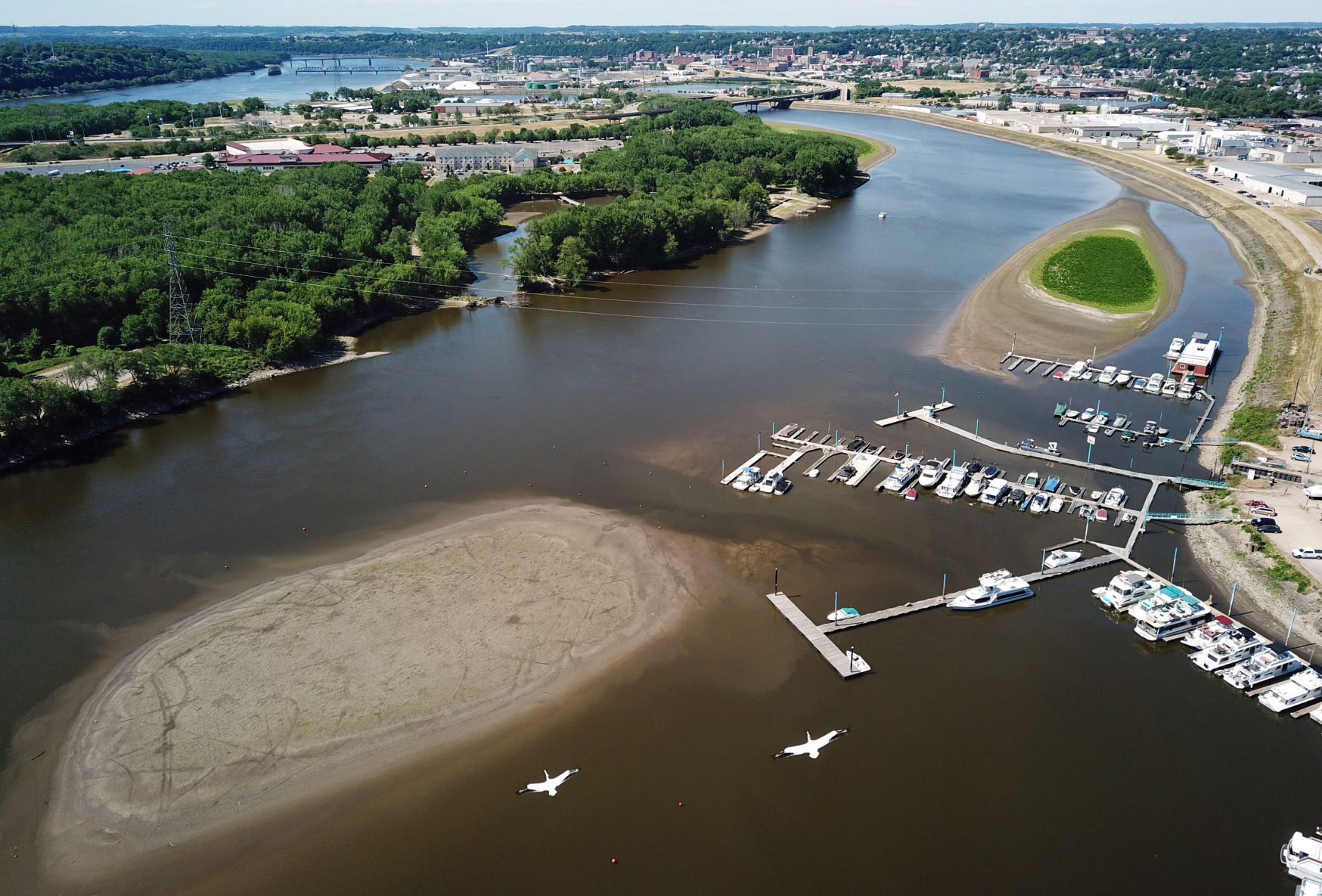Jeff Pape, who grows corn and soybeans near Dyersville, Iowa, has seen dry conditions impact his crops before — just not this early in the season.
“We’re starting to see some corn getting to be a lighter color, which indicates a shortage of moisture,” he said. “I’ve never seen it like this in June. We’re seeing lawns go brown and corn curl up.”
Josh Michel, field agronomist with Iowa State University, covers most of northeast Iowa, including Dubuque County and points north. His recent visits to area farms revealed worsening conditions.
“It’s starting to get fairly serious,” he said. “Most of northeast Iowa has only received a quarter-inch of rain in the past two weeks, and in the last 30 days, most places have only received 25 to 50% of normal rainfall.”
Pape called the area’s lack of rain “very concerning.”
“We just went through our (traditionally) higher moisture period, and we didn’t get anything,” he said.
Dubuque has received 8.78 inches of rain since the start of the year, according to the National Weather Service. That’s about 7 inches less than normal.
“We’ve had low humidity and temperatures near 90,” said John Haase, a National Weather Service meteorologist. “Those conditions can suck the moisture out of the ground very easily.”
The weather service’s latest drought monitor was issued Thursday. It shows “moderate drought” conditions spread across a large area that includes Clayton and Delaware counties in Iowa and Crawford and Iowa counties in Wisconsin. Most of Grant and Lafayette counties also fall into the “moderate drought” category.
Dubuque, Jackson and Jones counties in Iowa, as well as Jo Daviess County in Illinois, are included in the slightly less severe “abnormally dry” category of the drought monitor, but Haase said conditions in those areas could worsen soon.
“With this really dry air we have, I suspect that the ‘moderate drought’ conditions will expand. It looks like (drought conditions) will intensify,” he said. “We have a chance of thunderstorms Thursday night, but it doesn’t look like much of any rain will come with it.”
Michel said a combination of opposing weather conditions has caused problems for some corn crops in northeast Iowa.
“We started out having an abnormally cool and wet spring, so corn plants had relatively shallow root systems,” he said. “Then, Mother Nature flipped the scale on us, and we went from one extreme to another.”
Faced with abnormally dry conditions, some corn plants with relatively shallow root systems are struggling to reach the moisture they need.
“Many plants are getting stressed easier and faster because they don’t have a deeper root system that can tap into moisture located farther down,” Michel said. “And the dry air that’s out there is taking up any extra moisture from the soil and the plants. We’re seeing a lot of heat stress in corn plants as early as 8 or 9 in the morning. We’re seeing leaf rolling in corn that is not able to adequately handle the heat stress out there.”
The lack of moisture this year has also been a concern for tourism, with both falling Mississippi River levels and the much-anticipated Major League Baseball game at the Field of Dreams movie site in Dyersville.
“As we all know, the corn is the greatest prop of the Field of Dreams,” said Keith Rahe, director of Travel Dubuque. “With the lack of rainfall, that has become difficult. Amazing Baseball has done a great job with the corn around the outfield fence. They’ve had that irrigated.”
But Rahe’s family, which farms the area around the Field of Dreams, is going to have to start irrigating the corn throughout the valley, so the national and international attendees expected for the game have the right ambiance for their drive to the field as well.
Jake McGreal said he continues to hope for rain.
“We haven’t had any rain in three weeks,” said McGreal, whose McGreal Family Farms in Strawberry Point, Iowa, is a regular vendor at Dubuque Farmers Market. “We don’t do much row crops. We have beef cattle, and the hay is not growing as well as it normally does. We’re working on our first crop, and the hay is dry. The quality is not as good as it usually is.”
McGreal also tends to a productive garden.
“I’m having to do a lot of irrigating,” he said.
Joe Heinrich is a grain and livestock farmer in the Maquoketa, Iowa, area.
“We’re living on the edge (of the drought),” he said. “This weekend, we went four miles northwest of Maquoketa to Otter Creek, and it was markedly drier up there. It’s a have and have-not situation. We know some farmers south of the Quad Cities, and they had trouble getting their crops in because they had so much rain.”
Heinrich said the lack of rainfall in the area of his Jackson County farm hasn’t adversely impacted his crops — yet.
“It could become really serious really quickly later this summer,” he said.


